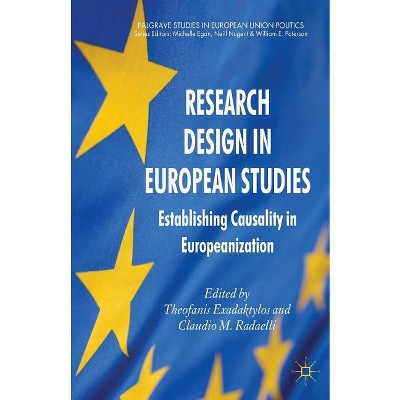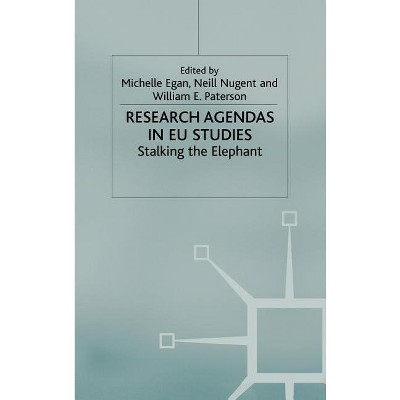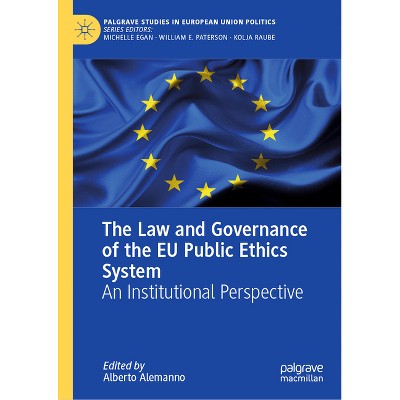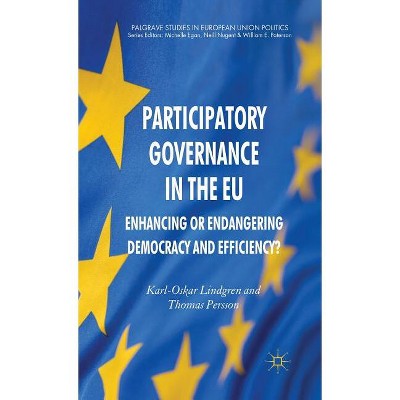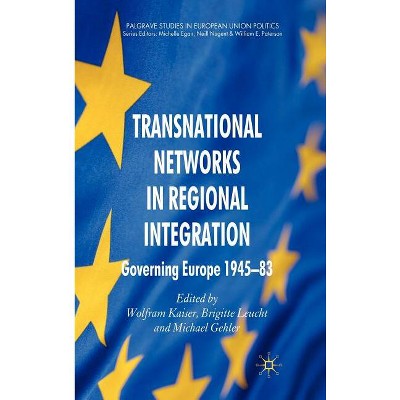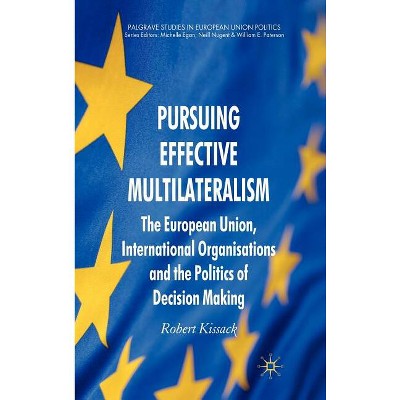Sponsored

Research Methods in European Union Studies - (Palgrave Studies in European Union Politics) by K Lynggaard & I Manners & K Löfgren (Hardcover)
In Stock
Sponsored
About this item
Highlights
- This collection sets a new agenda for conducting research on the EU and learns from past mistakes.
- About the Author: Magnus Blomgren, Umeå University, Sweden Angela Bourne, University of Roskilde, Denmark Sevasti Chatzopoulou, Roskilde University, Denmark Laura Cram, University of Edinburgh, UK Amandine Crespy, Université Libre de Bruxelles, Belgium Theofanis Exadaktylos, University of Surrey, UK Sara Hagemann, London School of Economics and Political Science, UK Ann-Christina L. Knudsen, Aarhus University, Denmark Annica Kronsell, Lund University, Sweden Jenny Lewis, University of Melbourne, Australia Martino Maggetti, University of Zürich, Switzerland and University of Lausanne, Switzerland Julie Hassing Nielsen, University of Copenhagen, Denmark Stratos Patrikios, University of Strathclyde, UK Sebastiaan Princen, Urecht University the Netherlands Claudio Radaelli, University of Exeter, UK Ben Rosamond, University of Copenhagen, Denmark Michael Strange, Malmö University, Sweden Alex Warleigh-Lack, University of Surrey, UK
- 342 Pages
- Political Science, World
- Series Name: Palgrave Studies in European Union Politics
Description
About the Book
"Research on the European Union over the past few years has been strongly implicated in the crises that currently grip Europe with a failure to ask the pertinent questions as well as a perceived weakness in the methods and evidence used by researchers providing the basis for these allegations. This volume moves the study of EU research strategies beyond the dichotomies of the past towards a new agenda for research on Europe through a rich diversity of problem-solving based research. This new agenda acknowledges the weaknesses of the past and moves beyond them towards greater openness and awareness of the importance of research strategies, designs and methods. The 20 chapters in this collection range from micro-level analyses of identities, single policy studies and European discourse, through meso-level analysis of agenda setting, bargaining, implementation and Europeanisation, to macro-level analyses of the EU as a global actor, European integration and globalisation as well as hard and soft governance, elections and party groups, attitude formation, and new-regionalism. As such, it provides a comprehensive and accessible guide to conducting research on the European Union today"--Book Synopsis
This collection sets a new agenda for conducting research on the EU and learns from past mistakes. In doing so it provides a state-of-the-art examination of social science research designs in EU studies while providing innovative guidelines for the advancement of more inclusive and empirically sensitive research designs in EU studiesReview Quotes
'Those researching the EU are confronted with a bewildering menu of epistemologies, methodologies, research designs, and methods of data collection and analysis. In this very welcome volume, seasoned EU scholars unlock these bodies of knowledge and tailor them to the specific needs of 'their' sub-fields. The volume is a must read for all who seek to find more convincing answers to their research questions. And who does not?' Markus Haverland, Professor of Political Science, Erasmus University Rotterdam, The Netherlands
'This volume will serve as an extremely useful compendium of methodological issues and options for both budding scholars and established experts on the EU. To get a strong, comprehensive view of where research methods in EU studies stand today, start here.' Craig Parsons, Professor of Political Science and Director of European Studies, University of Oregon, USA
'This book is a must-read for any student and scholar working on European integration. Research methods and design in EU studies have, at best, been implicitly dealt with by individual scholars struggling through the maze of publications. The editors of this collective volume have brought together a stellar group of experts who provide highly instructive insights into the full range of methodologies associated with problem-driven research in EU studies. This excellent volume fills a huge gap in the literature.' Sabine Saurugger, Professor of Political Science, Sciences Po Grenoble, France
About the Author
Magnus Blomgren, Umeå University, Sweden Angela Bourne, University of Roskilde, Denmark Sevasti Chatzopoulou, Roskilde University, Denmark Laura Cram, University of Edinburgh, UK Amandine Crespy, Université Libre de Bruxelles, Belgium Theofanis Exadaktylos, University of Surrey, UK Sara Hagemann, London School of Economics and Political Science, UK Ann-Christina L. Knudsen, Aarhus University, Denmark Annica Kronsell, Lund University, Sweden Jenny Lewis, University of Melbourne, Australia Martino Maggetti, University of Zürich, Switzerland and University of Lausanne, Switzerland Julie Hassing Nielsen, University of Copenhagen, Denmark Stratos Patrikios, University of Strathclyde, UK Sebastiaan Princen, Urecht University the Netherlands Claudio Radaelli, University of Exeter, UK Ben Rosamond, University of Copenhagen, Denmark Michael Strange, Malmö University, Sweden Alex Warleigh-Lack, University of Surrey, UK











